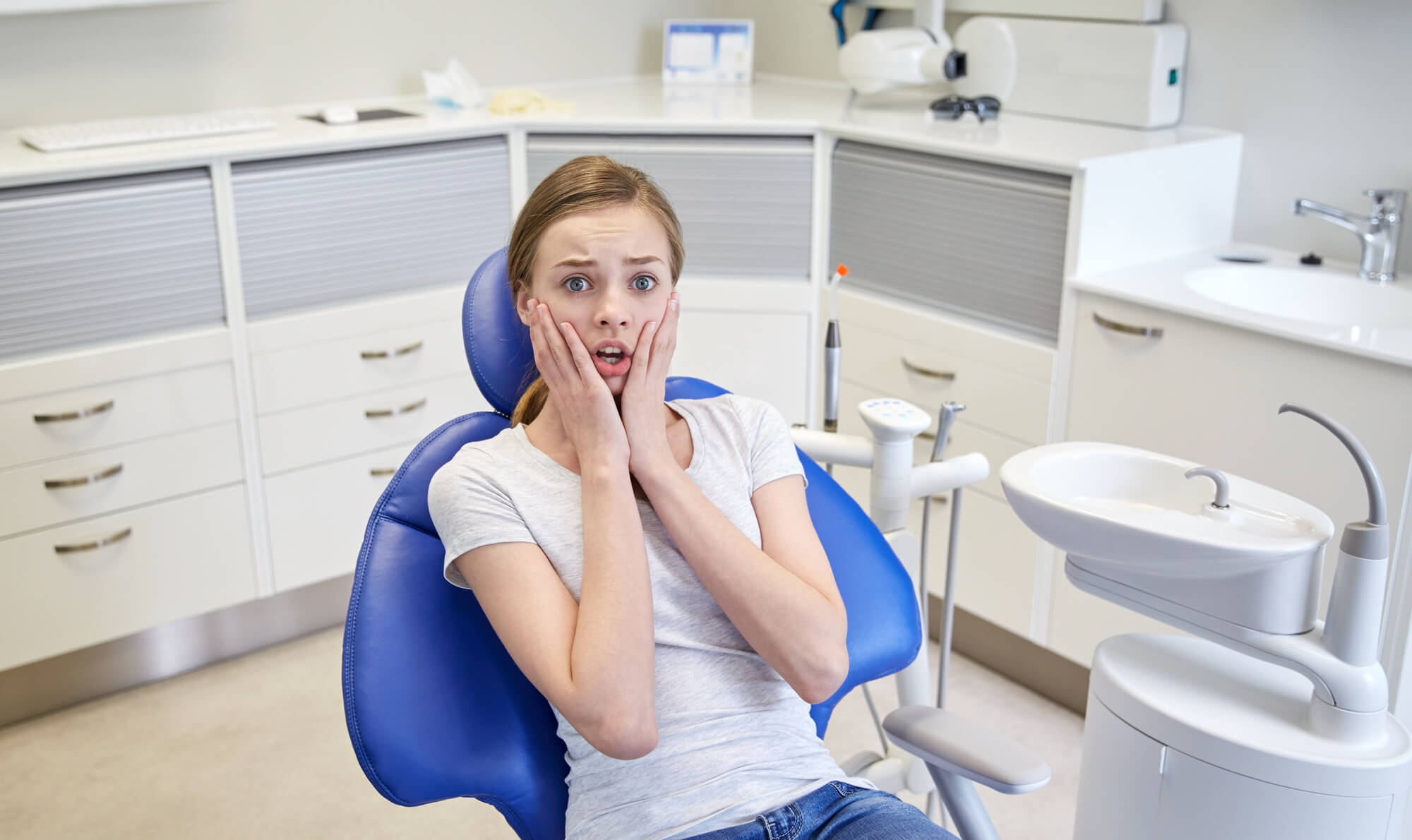One of the hardest things to control is your emotions. Even if you keep telling yourself there’s no reason to fear the dentist; feelings can betray you. Some can overcome their fear, while others need sedation dentistry in Wilson to quell their anxiety.
Dental anxiety can have repercussions, leading to postponing or avoiding dental treatments. Some of the triggers of dental anxiety are the sounds of drills, the sight of needles, and the clinical antiseptic smell of a dental office. Sedation dentistry helps control these fears.

Controlling Dental Anxiety 101
What Is Dental Anxiety?
According to a study about the prevalence of dental anxiety in the dental practice settings published by the Journal of Dental Hygiene, researchers found that between 50 and 80% of adults in the U.S. have dental anxiety ranging from mild to severe.
The reports show that more than 20% do not see their dentist regularly, while nine to 15% avoid dental consultations.
Dental anxiety is used to describe stress, nervousness, unease, and fear before and during a dental appointment. Because people don’t like to experience these negative emotions, they opt to avoid the dentist. Unfortunately, doing so comes with consequences. Luckily, you can get rid of your fear through dental sedation.
What Are the Symptoms of Dental Anxiety?
People with dental anxiety may exhibit the following symptoms:
- Excessive sweating
- Palpitations or tachycardia
- Low blood pressure
- May faint
- Crying
- Using aggression or humor to conceal the anxiety
Highly anxious people deliberately avoid their dentist and refuse to go through dental treatments regardless of the procedure. Even though there are risks, they are willing to accept them as long as they don’t have to deal with fear.
What Happens If You Give in to Dental Anxiety?
Can dental anxiety affect your oral health? Sad to say, the answer is yes, which is why you need to deal with it at some point before your oral health suffers. If you continue avoiding the dentist, your dental problems will only worsen.
Over time, it will lead to more complications and more expensive treatments. If you regularly visit your dentist for an oral exam and teeth cleanings, your dentist can detect and discover problems early. Early detection means the treatments are less expensive and more cost-efficient.
During a dental consultation, your dentist will check your mouth for signs of cavities, tooth decay, gum disease, and oral cancer.
These visits also allow your dentist to educate you about the most common oral diseases and how they can affect your overall health by increasing your risk of developing a stroke, heart disease, diabetes, and certain cancers. It’s also an opportunity for your dentist to highlight the importance of proper dental hygiene.
How Can Sedation Dentistry Help With Dental Anxiety?
Sedation dentistry, also known as sleep dentistry, refers to using certain medications to help calm and relax a patient before and during a dental procedure. The term sleep dentistry is seldom used because most of the time, patients are awake during the procedure, but they will be so relaxed that they can sit comfortably still throughout the treatment.
What Are the Different Types of Sedation?
- Inhalation Sedation – Nitrous oxide or laughing gas is delivered through a mask. You just need to breathe the gas in, and you’ll feel all the stress and tension leave your body in a few minutes. How can gas calm your nerves?
When you start breathing nitrous oxide in, it will slow your body’s reaction time, making you happier and more relaxed. The effect of nitrous oxide wears off fast. The moment you stop inhaling it, the calming effect will wear off.
- Oral Sedation – This form of sedation is the most popular in the dental industry. It usually comes in pill form. You’ll be asked to take the pill at least 30 minutes up to an hour before your dental appointment.
When the effect of the drug kicks in, you’ll feel drowsy. Some patients also say they lose track of time, so even if the procedure lasted three hours, it would feel like it just went by for a few minutes.
The drowsy effect may also cause you to fall asleep. Compared to inhalation sedation, the impact of an oral pill tends to linger. For safety reasons, if you opt for oral sedation, your dentist will advise that you ask a friend or a family member to drive you home after the treatment.
- Intravenous Sedation – In this type of sedation, you will get the drug through a vein, and the effect works much faster. It also allows your dentist to make certain adjustments to the level of sedation.

Interested in Sedation Dentistry in Wilson?
If you suffer from dental anxiety, be glad to know that our team at Tyron Family Dentistry will offer various dental sedation options to keep you relaxed and comfortable during your visit. We have years of experience, knowledge, and skills to give you the best care. Contact us today for more information.

